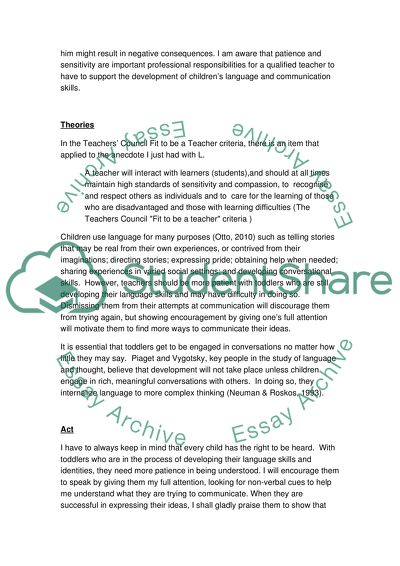Cite this document
(“Reflections of what happened in early childhood center of early Essay - 3”, n.d.)
Retrieved from https://studentshare.org/education/1421164-reflections-of-what-happened-in-early-childhood-center-of-early-childhood-education-in-nz
Retrieved from https://studentshare.org/education/1421164-reflections-of-what-happened-in-early-childhood-center-of-early-childhood-education-in-nz
(Reflections of What Happened in Early Childhood Center of Early Essay - 3)
https://studentshare.org/education/1421164-reflections-of-what-happened-in-early-childhood-center-of-early-childhood-education-in-nz.
https://studentshare.org/education/1421164-reflections-of-what-happened-in-early-childhood-center-of-early-childhood-education-in-nz.
“Reflections of What Happened in Early Childhood Center of Early Essay - 3”, n.d. https://studentshare.org/education/1421164-reflections-of-what-happened-in-early-childhood-center-of-early-childhood-education-in-nz.


